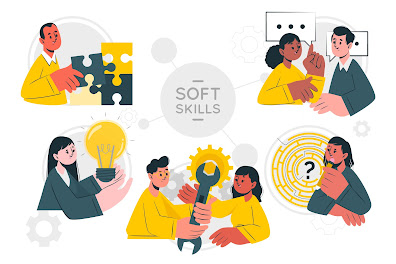Ethical Considerations in the Level 3 Certificate in Assessing Vocational Achievement
Introduction:
The Level 3 Certificate in Assessing Vocational Achievement equips assessors with the skills and knowledge to evaluate a candidate's competence in a vocational setting. However, the assessment process is not merely about ticking boxes; ethical considerations play a crucial role in maintaining fairness and reliability. In this blog, we will delve into the ethical considerations assessors must bear in mind and the challenges they face to ensure a balanced and equitable assessment process.
Ethical Considerations:
1. Equality and Diversity:
Assessors must be vigilant in promoting equality and diversity throughout the assessment process. This involves recognizing and appreciating the diverse backgrounds, experiences, and capabilities of candidates. Discrimination or bias based on gender, race, age, or any other characteristic must be actively avoided.
2. Confidentiality:
Maintaining confidentiality is paramount to building trust between the assessor and the candidate. Assessors should handle candidate information with care, ensuring it is not shared without consent. This extends to safeguarding the results and assessment materials and preventing unauthorized access.
3. Fair Assessment:
Fairness is at the core of the assessment process. Assessors need to create an environment that allows each candidate an equal opportunity to showcase their skills. This involves designing assessments that are free from bias, reflecting the actual requirements of the vocational setting.
4. Transparency:
Keeping candidates informed about the assessment process, criteria, and outcomes is crucial. Transparency builds trust and ensures that candidates understand what is expected of them. Clear communication helps alleviate anxiety and fosters a positive learning experience.
5. Professional Integrity:
Assessors are expected to act with integrity and professionalism. This includes avoiding conflicts of interest, refraining from accepting gifts or favors from candidates, and maintaining objectivity in the assessment process. Professional integrity is the bedrock of a reliable and trustworthy assessment.
Challenges in Maintaining Fairness and Reliability:
1. Standardization:
Achieving consistency in assessments across different assessors and settings can be challenging. Standardization of assessment tools and criteria is necessary to ensure that all candidates are evaluated against the same benchmarks. This requires ongoing collaboration and training among assessors.
2. Subjectivity:
Assessors must guard against subjective judgments that may unintentionally influence the assessment process. Implementing clear and objective assessment criteria, coupled with regular calibration sessions among assessors, helps minimize subjectivity and maintain reliability.
3. Resource Constraints:
Limited resources, such as time and funding, can hinder the ability to conduct thorough assessments. Assessors may face pressure to expedite the process, potentially compromising the quality and fairness of assessments. Adequate resource allocation is essential to overcoming this challenge.
4. Feedback Delivery:
Providing constructive feedback is integral to the assessment process. However, delivering feedback in a way that is both honest and encouraging can be tricky. Assessors must strike a balance, emphasizing areas for improvement without discouraging candidates.
Conclusion:
Navigating the ethical considerations in the Level 3 Certificate in Assessing Vocational Achievement requires a delicate balance. Assessors play a pivotal role in upholding equality, confidentiality, fairness, transparency, and professional integrity. The challenges they face, including standardization, subjectivity, resource constraints, and feedback delivery, highlight the need for ongoing training and collaboration within the assessing community. By addressing these challenges head-on, assessors can ensure that the assessment process remains not only rigorous and reliable but also ethically sound, fostering a positive learning environment for candidates.

.jpg)


Comments
Post a Comment